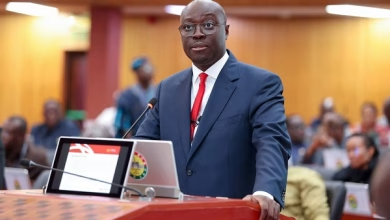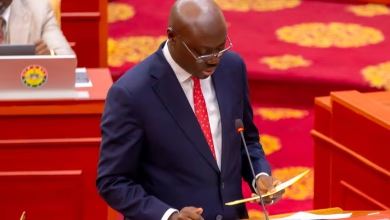Ghana’s Economy on Brink of Collapse: Analyst Warns of Looming Crisis

- Ghana's economy faces severe challenges: high inflation, interest rates, and debt.
- IMF and World Bank warn of economic vulnerabilities, urge swift action.
- Ghana's situation similar to Zimbabwe's and Greece's past economic crises.
- Urgent reforms needed to restore economic stability and promote growth.
Ghana’s economy is facing significant challenges that require immediate attention to prevent a severe economic downturn. The International Monetary Fund (IMF) and the World Bank have warned about the country’s economic vulnerabilities, emphasizing the need for swift and comprehensive measures to stabilize and revitalize the economy.
The current economic challenges are attributed to high inflation and interest rates, which have reduced purchasing power and increased the cost of living. In April 2023, the Ghana Statistical Service reported an inflation rate of 42%, one of the highest in Africa.
The high inflation rate has led the Bank of Ghana to maintain high interest rates, which have hindered investment and economic growth. The Ghana cedi has also been depreciating against major international currencies, increasing import prices and inflation.
The depreciation is partly due to large budget deficits and excessive levels of public debt, which have damaged investor confidence. Ghana’s public debt-to-GDP ratio has reached 80%, raising concerns about its sustainability.
Servicing this debt has become increasingly difficult, consuming a significant portion of government revenue and reducing fiscal space for development programs and social spending. To address these challenges, monetary policy must strike a balance between controlling inflation and promoting economic growth.
Fiscal policy should prioritize investments in infrastructure and human capital, improve tax collection, and reduce wasteful spending. A managed floating exchange rate system can help stabilize the cedi, boost investor confidence, and reduce imported inflation.
Ghana’s economic situation is comparable to Zimbabwe’s in the early 2000s and Greece’s debt crisis in the early 2010s. Lessons from these countries emphasize the importance of fiscal discipline, efficient monetary policy, and strong institutions in avoiding similar mistakes.
Without strong and coordinated actions, Ghana’s economy faces a catastrophic recession. However, by implementing smart monetary and fiscal policies, properly regulating the exchange rate, and learning from other countries’ experiences, Ghana can overcome its current obstacles and chart a path for long-term economic growth.
The government and economic managers must take urgent and decisive action to address the economic challenges facing the country. This requires a coordinated approach that involves monetary and fiscal policy reforms, exchange rate management, and debt management.
By taking the necessary steps, Ghana can restore economic stability, promote sustainable growth, and improve the living standards of its citizens. The time for action is now, and the future of Ghana’s economy depends on it.






